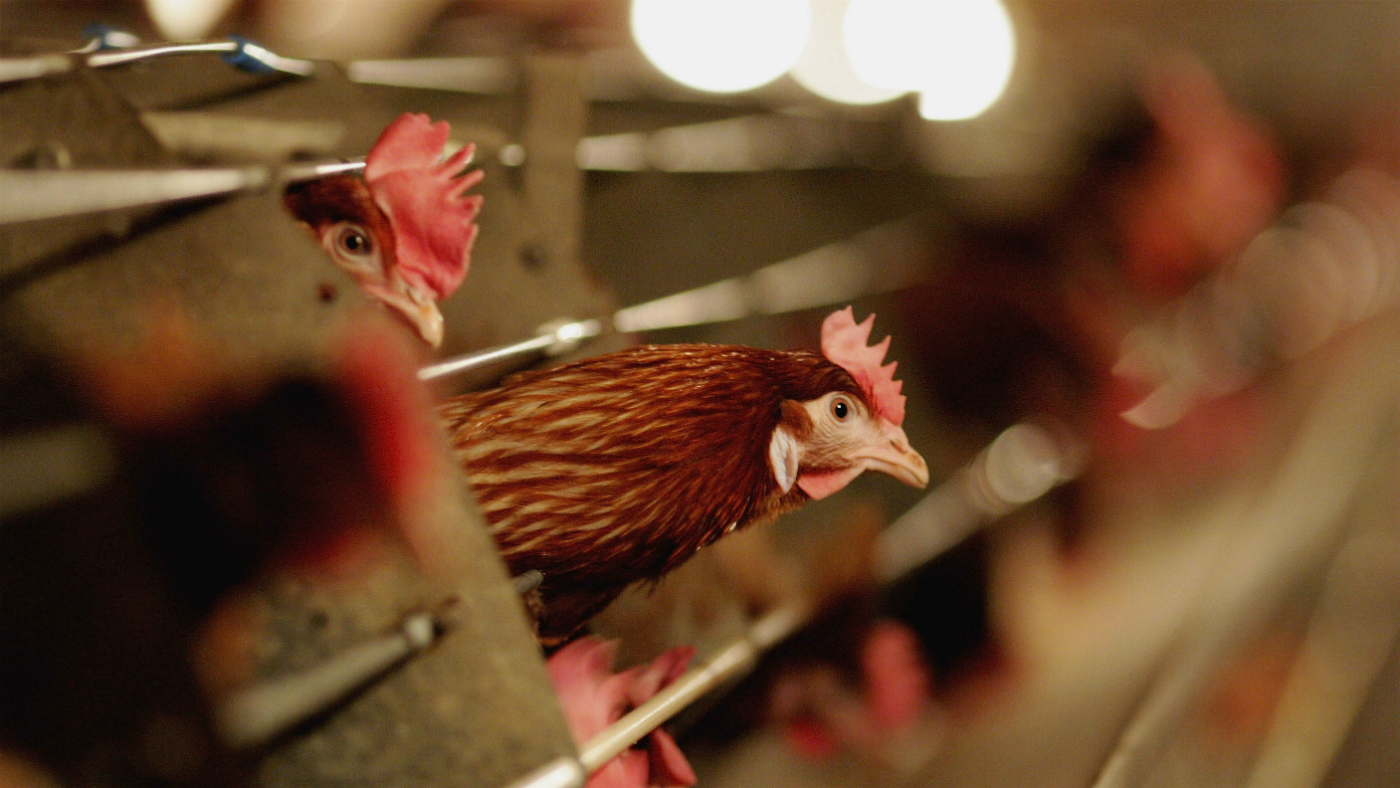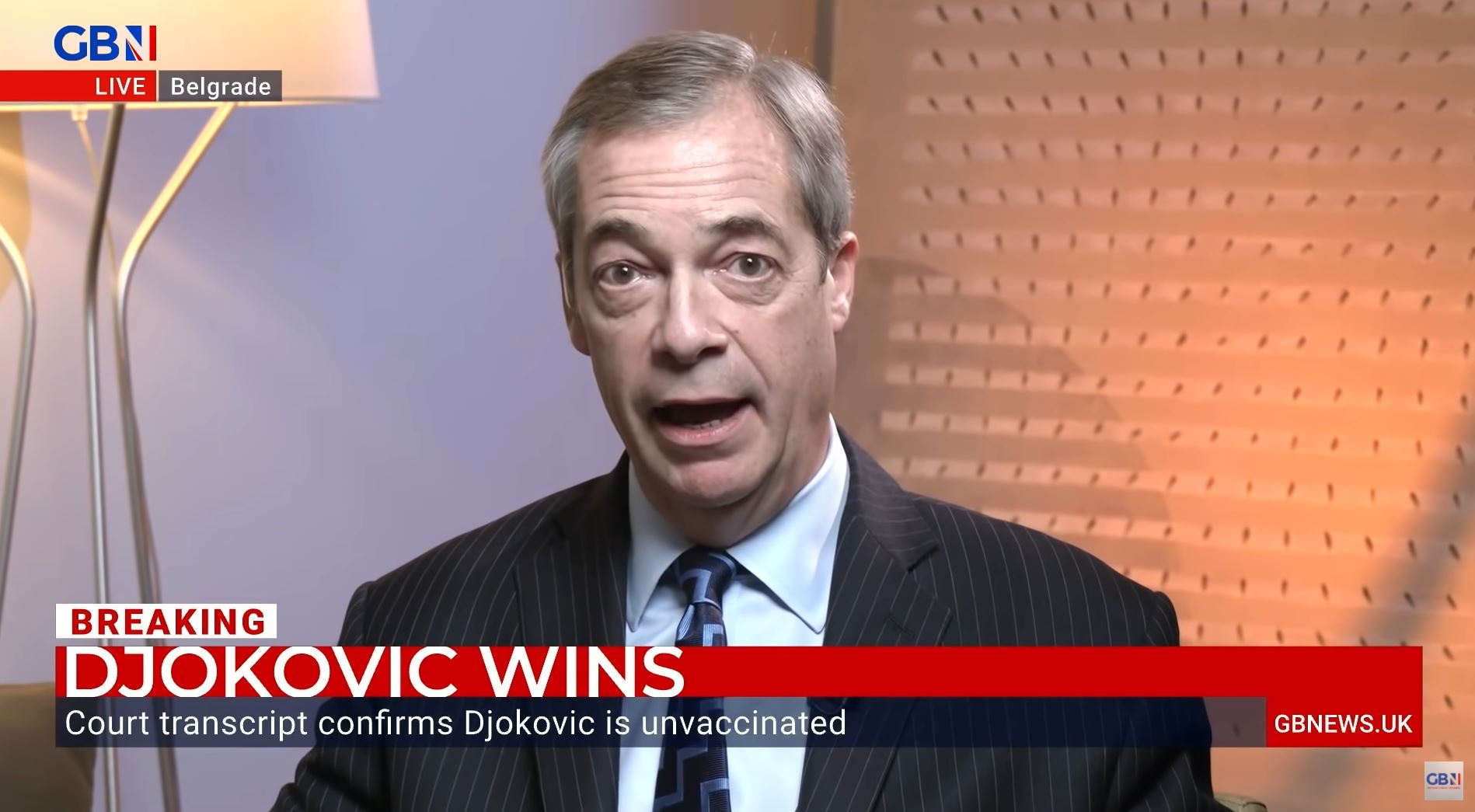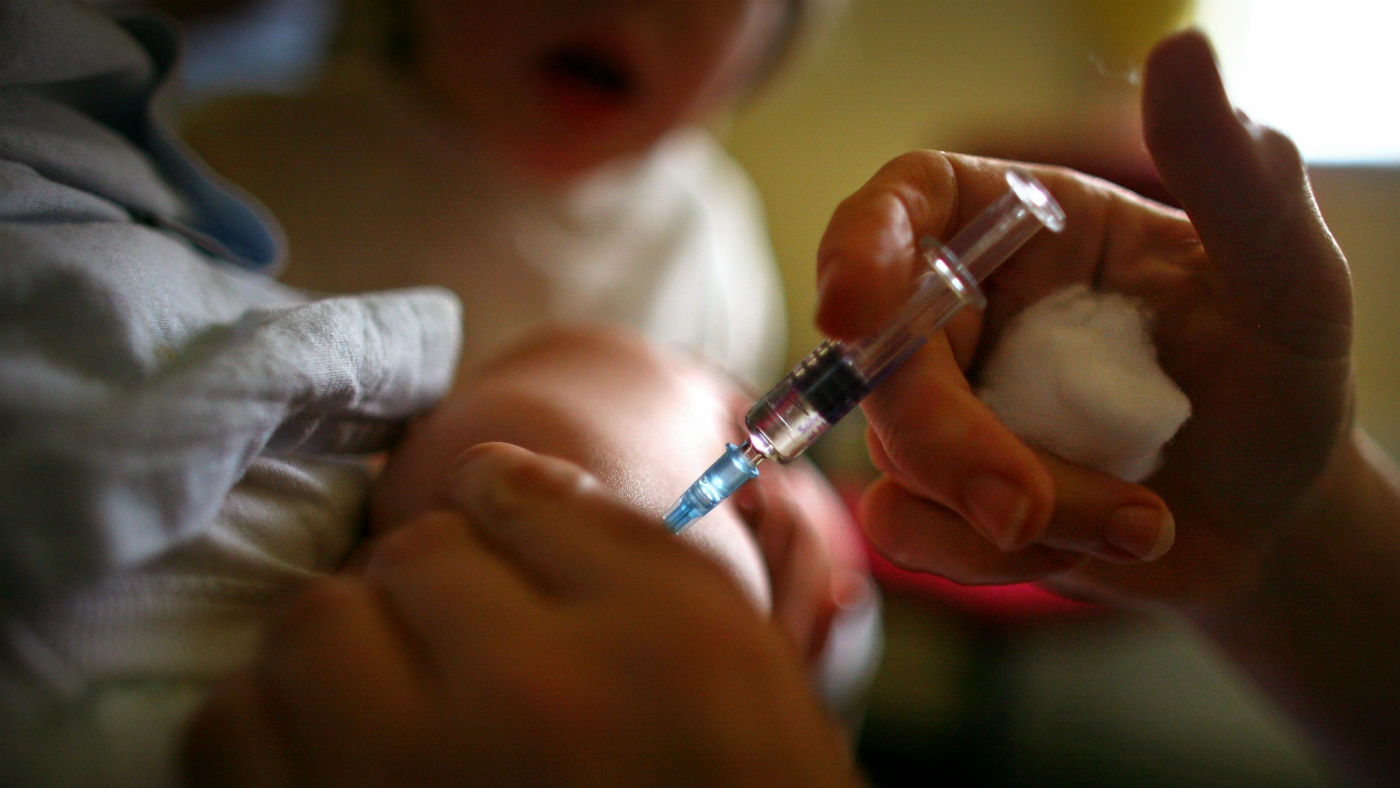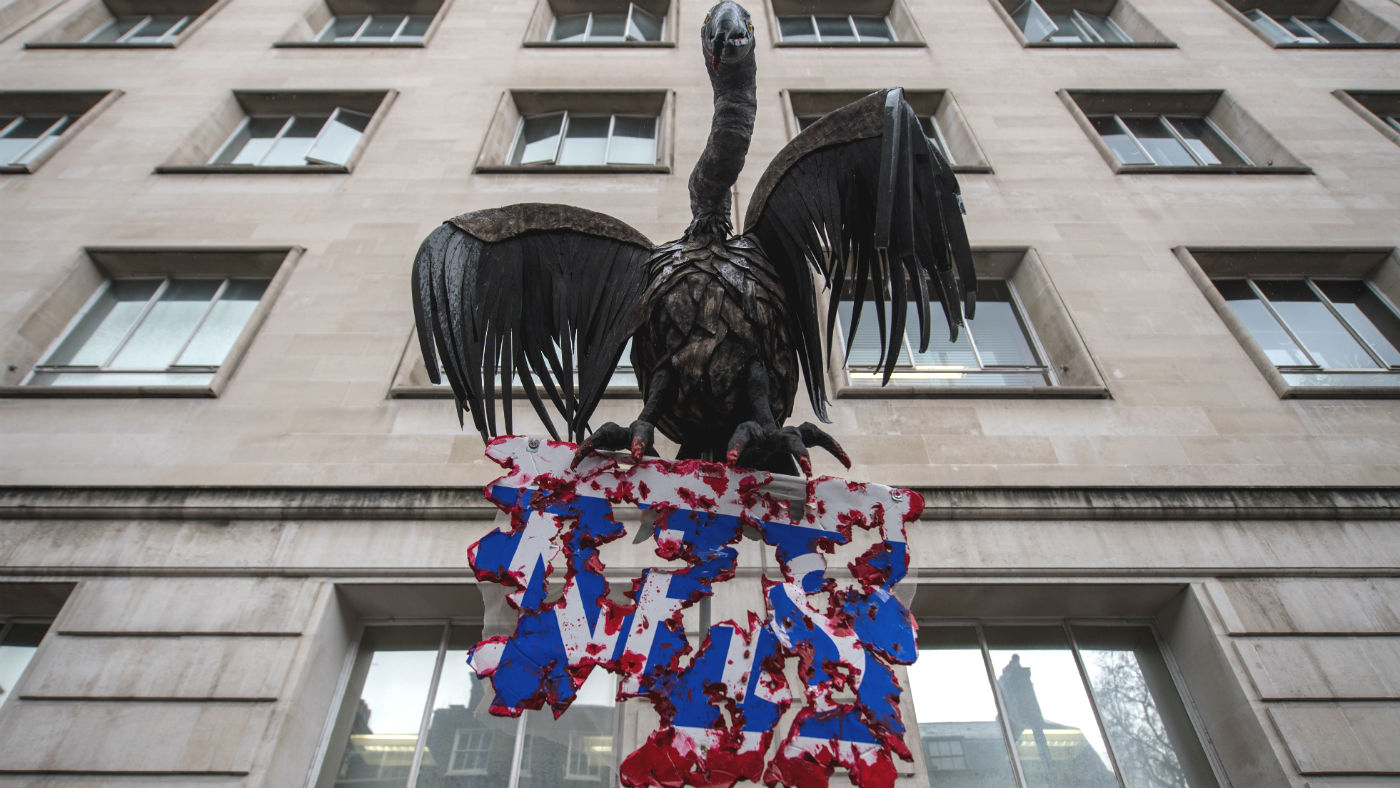How safe is chlorine-washed chicken?
US ambassador to the UK says claims about dangers of imported American poultry are ‘misleading’

A free daily email with the biggest news stories of the day – and the best features from TheWeek.com
You are now subscribed
Your newsletter sign-up was successful
Talks between Britain and the US over post-Brexit trade deals have sparked debate about the safety of chlorine-washed chicken.
The process of washing chicken in chlorine and other disinfectants was banned by the European Union in 1997 because of safety concerns, a move that has “stopped virtually all imports of US chicken meat which is generally treated by this process”, the BBC reports.
So why is it in the news again?
The Week
Escape your echo chamber. Get the facts behind the news, plus analysis from multiple perspectives.

Sign up for The Week's Free Newsletters
From our morning news briefing to a weekly Good News Newsletter, get the best of The Week delivered directly to your inbox.
From our morning news briefing to a weekly Good News Newsletter, get the best of The Week delivered directly to your inbox.
The UK and US are negotiating a trade deal that may see Britain open up to US farmers for meat, which is not bound by the same strict food safety rules as meat from the EU. But opponents of chlorine-washed chicken “say that British farming standards must not be sacrificed in any future US trade deal”, says Food Ingredients First.
This week, the US ambassador to the UK, Woody Johnson, caused controversy by writing an article in The Daily Telegraph that claimed the chlorination process used on US chicken is similar to those used by European farmers to treat fruit and vegetables.
“Inflammatory and misleading terms like ‘chlorinated chicken’ and ‘hormone beef’ are deployed to cast American farming in the worst possible light,” he wrote.
What is chlorine-washed chicken?
A free daily email with the biggest news stories of the day – and the best features from TheWeek.com
In the US, it is common practice for chicken meat to be treated with antimicrobial rinses to remove bacteria deemed to be harmful to humans. These rinses, known as pathogen reduction treatments (PRTs), contain chlorine dioxide solution, acidified sodium chlorite and trisodium phosphate.
A 2017 report by the Adam Smith Institute, which argues in favour of allowing chlorinated chicken in the UK, states that “immersing carcasses in a chlorine dioxide solution of the strength used in the US has been shown to reduce salmonella prevalence from 14% in controls to 2%”.
Food Ingredients First notes that the US “has some voluntary codes but compared with the EU, the US poultry industry is unregulated which allows for flocks to be kept in greater densities”. This can lead to a greater incidence of infection, so chlorine treatment is sometimes touted as a solution.
Why is it banned in the EU?
Producers in Europe are only allowed to use cold air and water to decontaminate poultry carcasses.
The EU banned the import of PRT-treated chicken in 1997, but not because of the explicit use of chlorine and other chemicals in the preparation process. In fact, a 2005 report from the European Food Safety Authority concluded that “exposure to chlorite residues arising from treated poultry carcasses would be of no safety concern”, and noted that chlorine-rinsed bagged salads are common in the UK and other countries in the EU.
Instead, the EU cited concerns that the “use of antimicrobial treatments like chlorine washes compensates for poor hygiene behaviour elsewhere in the supply chain”, The Grocer says, adding that “consumers are better protected by a system that doesn’t allow processors the simple ‘get-out’ of treating their chicken with chemicals”.
Tom Super, of the National Chicken Council, the trade association for American chicken farmers, told The Guardian last year that concerns over chlorine washing were “silly”, adding that the dispute “has never been an issue of science, rather one of politics and protectionism”.
However, the US Department of Agriculture’s National Antimicrobial Resistance Monitoring System found a significant amount of the bacteria campylobacter in 30% of chlorine-washed chicken carcasses, 26% of chicken parts and 58% of “mechanically separated” chicken, which is used to make things like chicken nuggets. The BBC notes that these chicken products contained more than 400 units of bacteria per gram.
The Food Standards Agency in the UK found similar results with British chicken, indicating that chlorine-washed chicken does not contain more harmful bacteria than that produced in the EU.
A recent study by the University of Southampton found that while chlorine appears to remove bacteria, they can hide in and under “folds of skin” and lie “dormant” once treated with chlorine, only to re-emerge in new conditions – on a chopping board, for example, iNews reports.
-
 Switzerland could vote to cap its population
Switzerland could vote to cap its populationUnder the Radar Swiss People’s Party proposes referendum on radical anti-immigration measure to limit residents to 10 million
-
 Political cartoons for February 15
Political cartoons for February 15Cartoons Sunday's political cartoons include political ventriloquism, Europe in the middle, and more
-
 The broken water companies failing England and Wales
The broken water companies failing England and WalesExplainer With rising bills, deteriorating river health and a lack of investment, regulators face an uphill battle to stabilise the industry
-
 Brexit, Matt Hancock and black swans: five takeaways from Covid inquiry report
Brexit, Matt Hancock and black swans: five takeaways from Covid inquiry reportThe Explainer UK was 'unprepared' for pandemic and government 'failed' citizens with flawed response, says damning report
-
 The decline of the tampon
The decline of the tamponfeature The environmental impact of the product ‘doesn’t fit well with Gen Z’
-
 Nigel Farage and Andy Murray volley barbs over Djokovic, Brexit
Nigel Farage and Andy Murray volley barbs over Djokovic, BrexitSpeed Read
-
 Has Britain’s Covid response finally become ‘world beating’ - and did Brexit boost vaccine rollout?
Has Britain’s Covid response finally become ‘world beating’ - and did Brexit boost vaccine rollout?In Depth Health secretary claims speedy approval of Pfizer jab is thanks to UK’s impending departure from EU
-
 How Brexit is affecting mental health
How Brexit is affecting mental healthIn Depth Uncertainty surrounding UK’s future is having worrying effects on the nation’s psyche
-
 Will the NHS be ‘for sale’ after Brexit?
Will the NHS be ‘for sale’ after Brexit?Speed Read May refuses to rule out opening up the NHS to US drug companies as part of post-Brexit deal